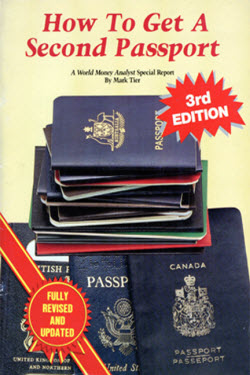Chapter 5
Central And South America

This part of the world is renowned for its willingness to supply passports of every kind. It is also an area where myths and mysteries abound.
Whilst each country has its unique requirements for the granting of citizenship, often involving investment, it is possible to identify the factors that allow the flourishing trade in “investor” and “instant” passports.
The discretionary powers and flexible attitudes of most governments in this area allow for considerable freedom of interpretation of the regulations. Most South American countries have ambiguous laws on investment and residence, which could almost have been designed to leave plenty of scope for official interpretation.
Senior officials within a government may be persuaded to vary or accelerate procedures, using legally vested powers.
The necessary arrangements can sometimes be made without a visit to the country concerned.
Points to watch when seeking Latin American citizenship include:
- How much will it cost?
- Through how many middlemen are you dealing?
- What exactly are you buying? Is it a full national passport, or just an alien travel document?
- What additional supporting documents will be received? Normally you should get at least a Cedula (ID) card, naturalisation papers, and a driving licence.
- Are you financially protected through the appointment of an escrow agent for the holding of your payment pending delivery of what you are promised?
I was recently told of one company that was in touch with a number of possible choices in Latin America. I was planning to include here mention of its name and address, so that readers might write in direct. However at the last minute I received news that political, pressure from the US has thrown some of these schemes into doubt. I am leaving this section in the Report because the schemes undoubtedly have existed, and for all I know the doubts will be cleared up before too long, so it is still useful for readers to know that there may be possibilities in this area, even if just at the time I write this there is some kind of hiatus. I suggest that readers interested in exploring any of the possibilities in this area should write to me as indicated elsewhere in this edition. By the time I get their letters our continuing monitoring of the area may have brought up news of further developments.
Before the recent developments, I had been told it was possible to get naturalisation from certain of these countries in relatively short time spans, varying between three and six months, through government programs or official powers.
The company that was offering a service in the area published a list of processing requirements that included (items 2,3,4, and 7 to be supplied for each individual family member):
- An application form (obtainable from the company).
- An affidavit of identity and birth certificate — or an authenticated copy.
- Negative black and white photographs.
- Photocopies of the first five pages of the current travel document.
- A deposit, to be followed by the balance, on account of the total cost.
- Signed escrow instructions to the chosen escrow agent.
- Affidavit of good conduct or police certificate of no criminal convictions.
The company’s cost estimate was upwards of $US25,000 for each head of family plus upwards of $US15,000 for all dependent family members — usually a maximum of four, but of course when the schemes are revived (if they are) we may get some different figures.

